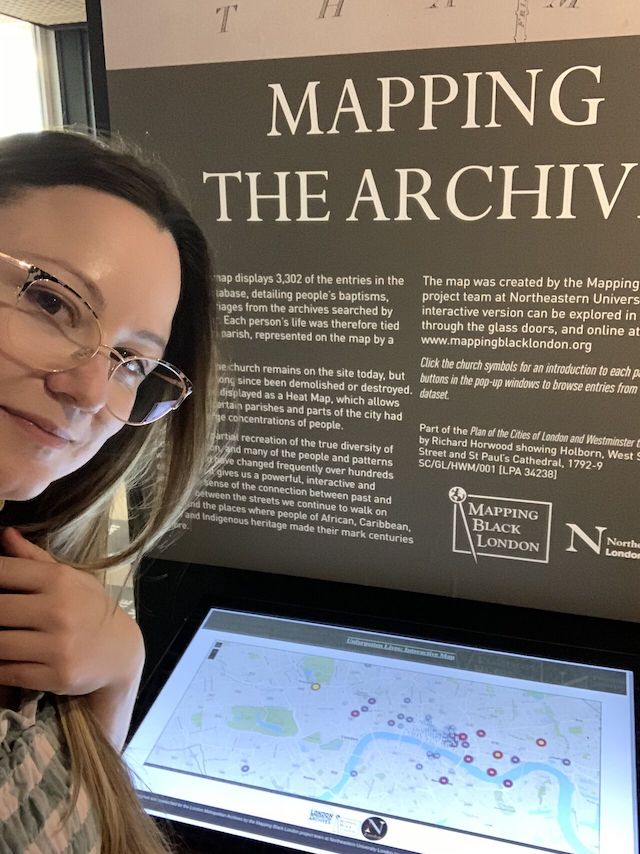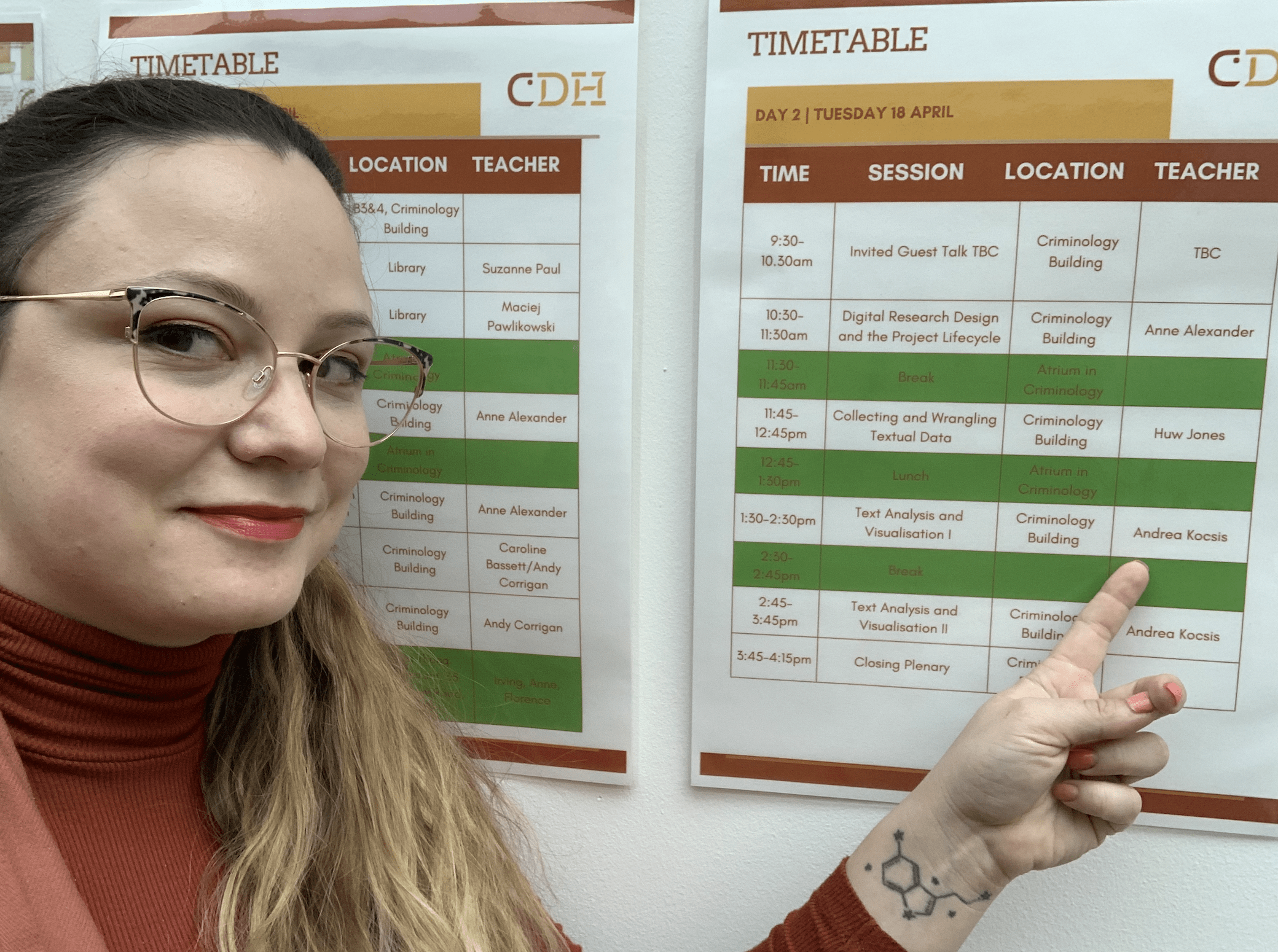1. Interactive web app and display screen to explore and play with the dataset
I love gamifying data as it makes even the most technical topic less intimidating. Imagine an interactive screen displayed at the Library where both children and adults can play drag-and-drop games to learn more about misinformation and explore the data set.
Want to access it from home? No problem. We can add it to the Data Foundry's website as well.
I design and code websites quickly and have experience creating museum displays and interactive data visualisations. The image shows me and a display screen I coded for the London Metropolitan Archives. Would you like to learn more about it?

